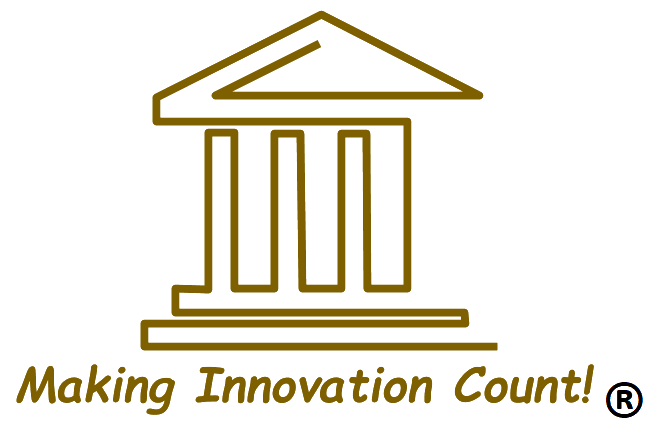|
Question: If I create a company to sell T-Shirts, what is the extent to be able to use likeness of other intellectual property.
Facts: I want to start a company to sell T-Shirts, and I want to use the likeness of things from video games and movies. I see others selling shirts with the likeness or even the characters themselves on the shirt. I want to know, if I were to use the likeness of the IPs, where is the breaking point? Where is it copyright infringement. Answer: Intellectual Property covers the application of laws to the fields of patents, trademarks, copyrights, and trade secrets. I will cover each field as it applies to the images you use on your t-shirts. Patents A patent is an exclusive right given to an inventor to exclude others, in this country, in the sale or manufacture of the idea covered by the claims in the patent. The public policy behind patents is to encourage inventors to innovate by granting them the exclusive right to exclude others in return for their disclosure of the idea to the public who can then build upon the idea to create new innovations. For an invention to be patentable it has to be (i) useful, (ii) novel, and (iii) not obvious. The lifespan of a patent is 20 years from the date it is filed. Here you will not be able to receive protection for your images by the use of a patent because the images on your t-shirts will not be considered “useful”. The USPTO considers an invention useful if it has some utility and images are not considered to have any utility. There does exist a class of patents called “Design Patents” which does protect ornamental features of a useful product. You could argue that the t-shirt is useful, provides cover and warmth, thus satisfying the first test. However the USPTO will likely find that your images are not novel and that the idea of putting images on t-shirts is obvious. Thus it is unlikely that the USPTO will grant you a Design Patent on your images. The plus side of this is that the likelihood of you being sued for patent infringement is unlikely as your competitors will not be able to protect their images with a patent. In summary, patent laws are just not applicable here. Trademark Many people think of logos that identify a company when considering trademarks. However that is just one a small part of the laws regarding trademarks. The Aspen outline on Intellectual Property describes trademarks as follows: “Trademarks permit consumers to identify the source of goods or services. The purpose of trademark law is to ensure that consumers are able to rely on marks in exercising their purchasing preferences by prohibiting competitors from using marks in a way that confuses consumers about the source, sponsorship, or affiliation of goods or services.”. So the public policy behind trademarks is to protect the consumer so if the consumer sees a car with the famous BMW logo on it they will know that the source of the car is BMW and not Ford. Here you have not described any of the images you are using other than that they will be like characters and images used by other companies. If you sell a t-shirt with an image of the BMW logo and consumers, when looking at the shirt, believe that the shirt is an authentic BMW t-shirt then you have infringed on the BMW trademark. Likewise with characters. You sell a shirt with an image of Snow White on it that leads people to believe that it is the same Snow White made famous by Disney then you have infringed on Disney’s Snow White trademark. Trademark law has additional complexities in that some marks are “Famous” marks, marks are registered in certain “classes”, and marks can have national, state, and/or local scope. However I have given you some basic information to go by. In summary trademark law does apply to your case. If you places images on your t-shirts that suggest to the consumer that the source of the t-shirt is a company other than yours you are likely infringing on someone’s trademark. Penalties include significant fines. The advantage you have on your side is that you are a small fish in a big pond. My recommendation is to remember the golden rule. After all you would not want someone to use a hot selling mark that you created would you? Copyright A copyright is automatically granted to the creator of certain original works of authorship. The “work” must be a substantial expression of an idea placed onto some tangible medium. The public policy behind copyrights is to allow the owner of the copyright to control who can copy their original work of authorship. Copyright differs from trademarks a couple ways. First is that the purpose of trademark law is to protect the consumer while copyright law protects the author. Second is that while a trademark can protects slogans and logos a copyright will only apply to “substantial” works such as poems, books, photographs, and such. There are however some similarities between the two areas of law. You do not need to register your mark or copyright to obtain the provided protections, you get them automatically (note that by registering your mark or copyright will get you expanded rights). Also they have to be “tangible”. That is they have to be on some reproducible medium such as paper or in a computer file. There are some exceptions but I will exclude the exceptions here so as not to confuse the discussion. Here you have stated that you will use images that are like other images. If the images are similar than you possibly have violated someone’s copyright. It is best to talk to a IP attorney but a good test is to show your images to others along with the image that served as your creative source. If the people you show your images to do not see any similarities then it is likely that you are not violating any copyrights. If your images have no creative source other than your mind then it is also likely you are not violating any copyrights. Copyright law does apply to your case here. Since you state that your images will be like other images it is likely that you will be violating someone’s copyright. Penalties include significant fines. The advantage you have on your side is that you are a small fish in a big pond. Again, my recommendation is to remember the golden rule. After all you would not want someone to offer for sale a hot selling image that you created would you?
0 Comments
Leave a Reply. |
Categories
All
|
California, Inland Empire - (909) 566-2801
California, Santa Barbara - (805) 500-6241
Tennessee - (423) 226-8036
Georgia - (404) 436-0899
California, Santa Barbara - (805) 500-6241
Tennessee - (423) 226-8036
Georgia - (404) 436-0899

